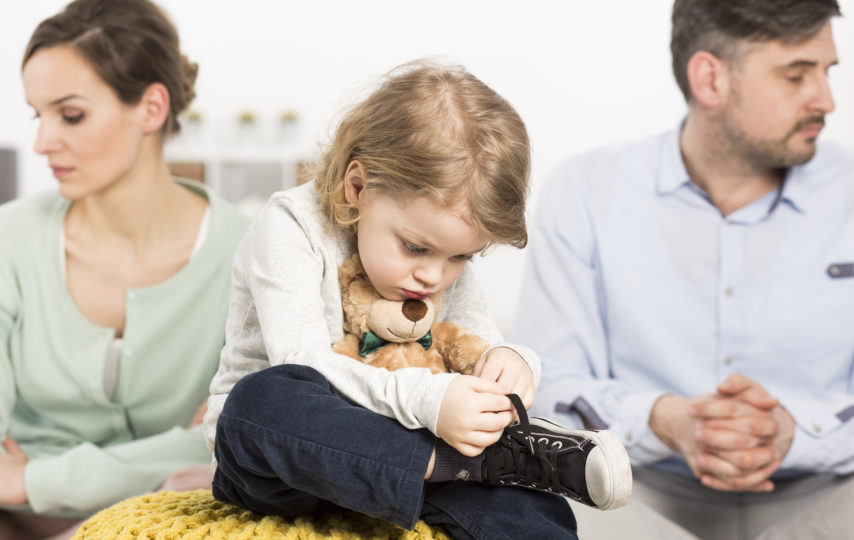Divorce is a hard thing to go through for any couple that has separated. Co-parenting during and after the divorce process is even harder.
Many families have become more comfortable with dealing with co-parenting. For example, over the last twenty years, the rate of shared custody arrangements has increased from five to twenty-five percent.
It is a trying time for everyone involved, so it is important to keep your head up so co-parenting does not become toxic. So how do you use your co-parenting tools well to ensure you both account for your child’s well-being?
Here are six tips for dealing with co-parenting after divorce.
1. Don’t Turn Your Kids Against Your Spouse
No one expects you to suddenly forget about a divorce or separation that had a lot of pain, hurt emotions, or inappropriate behavior. But what should not happen is you taking that pain and anger and telling your child/ren that they are a good reason for them to have animosity towards your ex-spouse.
No matter what you may feel towards your ex-spouse, you still need to remember that your children have had your ex-spouse as a significant part of their lives. This can be true, especially if it is their biological parent.
You should never talk bad about your ex in front of your children, nor should you make your kids feel like they need to choose sides. It is okay to acknowledge that there were mistakes made, but don’t put it to such a point that your kids obsess over things that did not matter in the grand scheme of things.
2. Make Sure You Both Show Up for Milestones and Important Moments
One thing the child of divorced parents finds really hard is when they see that only one parent has shown up to an event. That’s why, if you are cordial with your ex, share the good news about your child or their milestone with the ex or even include them in the moment if possible.
Having both of you cordial during these times are especially important; the American Association of Psychology has said that kids do better when parents can minimize conflict and cooperate on behalf of them.
3. Pick the Right Time to Communicate with Your Ex-Spouse
The most important rule about co-parenting is that the ultimate goal of doing it is to communicate to each other about how you should raise your kids separately, including any issues or challenges that may come up. When you cannot communicate in a cordial and constructive way, it leads to frustration on both sides.
You should also give a lot of notice for big events involving your children, even if they live far away from where you and your children live.
But most importantly, communicating with each other is not the time to air out your grievances against each other.
4. Maintain You and Your Children’s Boundaries
For some cases in your child’s life, they may want to talk about it with one specific parent. As hard as that may be, you will need to accept that. When you don’t permit access or private communication between a child and a parent, it can be damaging to both the relationship to your ex and to you.
If you do not feel like your co-parenting boundaries are being respected by your ex, you may have to turn to your family lawyer or a firm like Family Law Ipswich to enforce the aspects of the divorce judgment. If that does not happen, further court action may be needed.
5. Be Understanding of Your Child’s Emotions
Depending on your child’s emotional development at their age, they may deal with the process of divorce or co-parenting in different ways. Try to continue your usual daily routines and recreational activities to show your child that they can still have a stable life even with this all happening.
Don’t mistake this with giving in to your children or giving them whatever they want. Even when you are stressed, you need to give your child’s emotions the tools to succeed. If you do see that they are experiencing issues, talk to a child psychologist for advice.
6. Don’t Vent About the Divorce to Your Children — Use Someone Else
The issues around divorce are adult issues that your children will not be able to comprehend or know how to deal with. If you do so, it will damage their mental health for the long term.
Instead of speaking with your kids about your frustrations, take heed in one of your adult family members, friends, or a mental health professional. You can also try to join a support group for single parents in your area or go chat on a message board or chat room. That amount of support will help you be a better parent.
Co-Parenting After Divorce Doesn’t Have to Be Tough
Co-parenting after divorce can be tough, but it does not have to be. No matter what stage you are in the divorce process, your child’s well-being must be at the forefront of your mind during the co-parenting process, even if you have gone past it. Even though your family has broken apart from what it used to be (even perhaps forming into newly blended families), your child needs to trust that you and your ex-spouse will get along.
We hope you enjoyed this article. For more interesting posts like this, check out the other posts on our site













